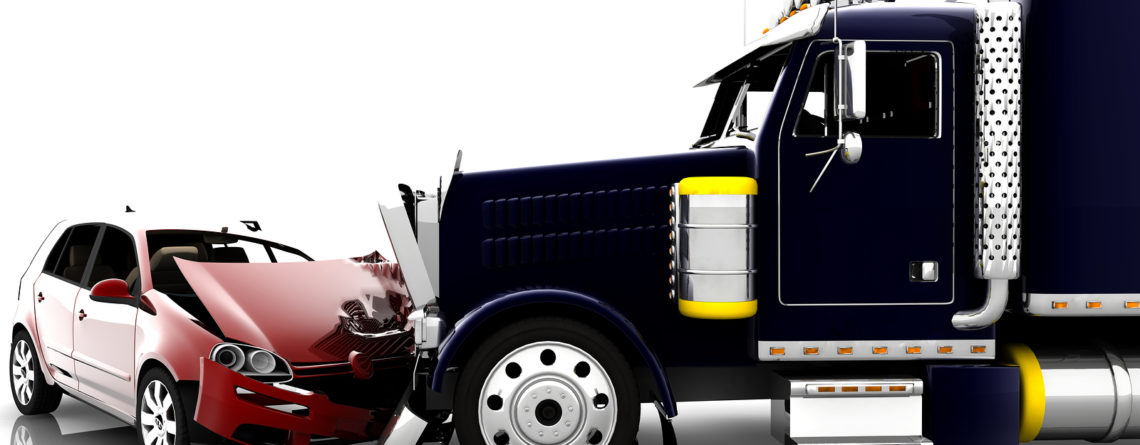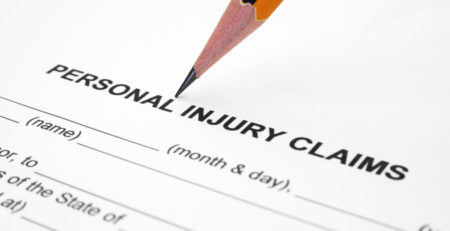WHO CAN BE SUED FOR TRUCK ACCIDENTS IN INDIANA? (HERE’S WHAT YOU NEED TO KNOW)
Commercial trucks haul essential products and goods to every town and city in the country. These trucks are critical to the economy, but they also present considerable risks to others who are on the road.
Across the U.S., more than 4,100 persons died in accidents with big commercial trucks in 2017. Thousands more suffered severe injuries. If you’re injured in Indiana in an accident that involves a large truck, what are your rights? How can you be compensated? Who can be sued?
If you’ll continue reading, those questions are about to be answered, and you’ll also learn where to turn for legal help if you are injured because of negligence in a truck accident – or in any traffic crash – in Greenwood, Indianapolis, or anywhere else in the state.
WHEN A TRUCK CRASHES, WHO HAS LIABILITY?
When a crash involves a commercial truck, even when the driver was obviously at fault, it can still be hard to identify who may be liable for damages. If you’re injured in a commercial truck crash, it’s imperative to consult at once with an experienced Greenwood truck accident attorney.
Among the first steps your attorney will take will be to identify the parties who are legally liable for the accident. How will liability be decided in the aftermath of a truck accident? Can you hold a trucking business – or any other party – liable for a truck driver’s negligence?
WHEN ARE EMPLOYERS LIABLE FOR AN EMPLOYEE’S NEGLIGENCE?
Yes, you can – sometimes. Because of a principle in law referred to as “respondeat superior,” an employer can sometimes be held liable for an employee’s negligence, provided such negligence was not intentional and took place within the “course and scope” of that employee’s job duties.
Respondeat superior is one type of “vicarious” liability. It imputes or transfers an employee’s liability to the employer. Whether respondeat superior will apply in a specific truck accident depends on the answers to these questions:
- Was the truck driver a trucking company employee or an independent contractor?
- Did the accident and negligence occur in the course and scope of the driver’s job duties?
- Was the negligence intended or unintended?
WHAT IF A TRUCK DRIVER IS AN INDEPENDENT CONTRACTOR?
Typically, a trucking company may be held liable for the negligence of employees but not for the negligence of contractors. If the truck driver who injures someone is a contractor, respondeat superior likely doesn’t apply, so the trucking company will probably have no liability.

When a driver owns the truck, carries liability insurance, has no taxes withheld, and is paid no additional benefits, that truck driver will probably be an independent contractor.
WHAT DEFINES THE COURSE AND SCOPE OF A TRUCK DRIVER’S JOB DUTIES?
Defining the course and scope of a truck driver’s employment can be difficult and complicated. A variety of factors have to be taken into account, including but not necessarily limited to:
- a truck driver’s job description
- the nature, time, and place where the negligence occurred
- how much discretion and freedom a driver has regarding job duties
- a driver’s intent when the negligence occurred
These examples may help. Should a trucker making deliveries crash into your vehicle, an employer will probably be held accountable for injuries because the driver was acting within the course and scope of his or her job duties.
But if that safe trucker leaves work, takes the truck out to a restaurant, and collides with your vehicle in the parking lot, the employer will probably have no liability as the driver acted apart from the course and scope of his or her job duties.
WHO IS LIABLE IF A TRUCKER INTENTIONALLY INJURES SOMEONE?
A trucking business may be held liable for accidents but typically isn’t liable for a truck driver’s intentional wrongdoing or negligence. If a trucker intentionally crashes into a specific vehicle – in a hate crime or in an incident of road rage, for instance – the company has no liability.
The trucking industry is governed by a vast number of federal and state regulations. A trucker’s hours, how much weight may be carried on a truck, and the type and amount of training required for truck drivers are only several of the matters regulated by federal and state law.
If a truck driver negligently injures someone, any direct violation of a state or federal trucking regulation – by either the trucking company or the driver – is evidence in the victim’s favor and makes it more likely that an injury victim will prevail with a personal injury claim.
WHO ELSE MAY HAVE LIABILITY FOR A TRUCK ACCIDENT?
If you are catastrophically injured or permanently disabled after a truck accident, the higher insurance coverage limits required for commercial trucks mean it’s more likely that you will actually obtain the complete compensation that you are entitled to and deserve.
In personal injury claims arising from truck accidents, more than a single defendant will often be involved. Leasing companies, contractors, and subcontractors may also have a share of the liability for accidents and injuries.

If a truck’s cargo hasn’t been loaded properly, if a truck’s brakes or tires were defectively manufactured, or if a truck is improperly maintained or entirely neglected, more than a single defendant may have a share of the liability for causing a truck accident and the ensuing injuries.
WHAT DOES IT TAKE TO DETERMINE LIABILITY FOR A TRUCK ACCIDENT?
Determining liability after a truck accident requires careful scrutiny of evidence such as the police report, toxicology and medical reports, dashcam video, eyewitness statements, and photos from the scene. In some cases, a lawyer may ask for help from an accident reconstruction expert.
When personal injury claims name multiple defendants, the claims may be more difficult to settle outside of the courtroom, and an injury victim may have to take one or more defendants to trial while settling out-of-court with one or more other defendants.
It sounds complicated – and it is – but once again, if you have been catastrophically injured or permanently disabled in a crash with a commercial truck, a personal injury claim with multiple defendants is more likely to provide the full compensation you need for long-term medical care.
WHEN SHOULD YOU SPEAK TO A PERSONAL INJURY ATTORNEY?
This has been only a brief general overview of truck collisions and liability. If you are injured in a truck collision in Indiana, you’ll need personalized, candid legal advice about your options and rights.
An experienced Greenwood personal injury attorney can offer the trustworthy legal advice and representation that a truck accident victim will need. If you’ve been injured by negligence, make the call at once after obtaining medical treatment. That’s your right, and it’s the right thing to do.





